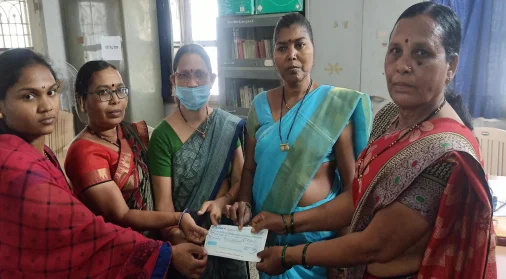
When Chetana Vikas was founded in 1977, its rural development work was limited to five villages in Wardha district. Today, it has expanded its work to over 100 villages in the same district, allowing it to impact thousands of families while retaining its local, grassroots focus. The organisation’s main vision is to empower individuals and communities to become truly self-dependent. Such holistic, sustainable development, it believes, is possible only by educating people about their rights as well as duties as citizens.
In a culture where women are often the most disempowered citizens, with little control over their finances or other resources, Chetana Vikas has ensured that women’s development and empowerment is one of its key areas of intervention. This involves creation of women’s self-help groups and federations as well as other programmes that educate rural women about their economic, political, socio-cultural and personal empowerment.
Another major area of intervention is agricultural development through programmes that emphasise being environmentally sound, economically feasible, socially just and culturally adapted. Some of Chetana Vikas’ programmes in this field include “Beej Swaraj” or the promotion of locally-evolved seeds, soil fertility management, ecological pest management, crop diversity and the exploration of alternative marketing of farm produce in a way that does not exploit farmers.
The project supported by MFE:
Chetana Vikas Women Empowerment
This three-year programme will focus on four aspects of women’s empowerment in Wardha: social, economic, political and health and nutrition.
Under social empowerment, Chetana Vikas aims to set up eight new functional Family Counselling Centres each year, where beneficiaries can register their cases and disputes. The organisation aims to resolve 85% of those cases satisfactorily.
With respect to economic empowerment, Chetana Vikas aims to support 50 new women’s start-ups and 100 new self-help groups each year. On an average, these SHGs earn a baseline income of Rs 70,000 a year, with individual members earning a baseline or Rs 24,000 a year. The organisation aims to increase both these incomes by at least 20% during the project period.
On the political front, the organisation has committed to setting up 30 new women’s committees, mobilising 25 new villages, and building the capacity of 200 new women leaders. They also aim to see a 10% increase in women’s participation in gram sabhas in 90% of the villages they work in.
Chetana Vikas has also set up several women-run nutrition farms, and during the project period, they aim to support a 145% increase in the diversity of food crops from women’s own fields, along with a 150% rise in their quantity of yield.

